Events & Promotions
| Last visit was: 28 Apr 2024, 12:56 |
It is currently 28 Apr 2024, 12:56 |

Customized
for You
Track
Your Progress
Practice
Pays
08:00 AM EDT
-09:00 AM EDT
08:30 AM PDT
-09:30 AM PDT
12:00 PM EDT
-11:59 PM EDT
08:30 AM PDT
-09:30 AM PDT
10:00 AM PDT
-12:00 PM PDT
10:00 AM EDT
-10:30 AM EDT
12:00 PM EDT
-01:00 PM EDT
 By Adam Hoff, Amerasia Consulting Group
By Adam Hoff, Amerasia Consulting Group








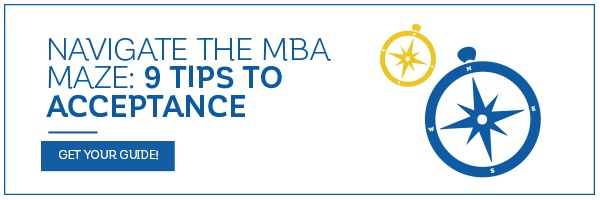


| FROM Haas Admissions Blog: What Can You Contribute to an MBA Class? |
 Business schools look for candidates who not only have something to gain from an MBA program, but also something to contribute. Think about that. What can you contribute to an MBA class? If you don't already see yourself as an MBA candidate, you might not have an immediate answer, and that's okay—you’ll soon discover that self-reflection is a big part of the MBA application process. We invite you to meet two students who have already gone through the process of determining how they could contribute to an MBA class and then to explore the different types of contributions you can demonstrate through your application. Underscoring design thinking experience Shivam Goyal, senior product manager at Adobe Systems and a second year student in the Evening & Weekend Berkeley MBA Program, evaluated his potential contributions by examining his past, and he recommends that other applicants do the same. "It is important not to discount the uniqueness of your own journey," says Shivam. "Admissions committees care less about big achievements or awards and more about personal anecdotes that will help them assess you as human being. When you dig deep and think about what triggered the events in your life to get you where you are today, it helps you understand and demonstrate who you are.” “Self-reflection helped me think about what I am bringing to the program, why that makes me unique, and what past events shaped my work and education experiences. For example, I started off as a design thinker. When I saw problems in the area where I was growing up, such as people not having universal access to information because of the digital divide between rural and urban populations and the lack of technology penetration in all strata of the society, it instilled a sense of humility and keenness to solve difficult social problems and made me think about the benefits of a design education." Want to learn more about the contribution you could make to an MBA program? Download our free ebook Five Signs You're Ready for an MBA "I started off as a user experience designer and was really close to the customer in terms of building the product. I started thinking about how I could contribute more by influencing product strategy at its inception and moved into a product management role. In that role, I realized the need for gaining business acumen to compliment my design and technology background. That's what led me to an MBA program.” “The design experience I acquired in undergraduate school and at work was unique to me and I thought it might be something valuable that I could bring to the program. I knew I could talk about customer empathy and solving real-world cases for a particular user problem to get the right outcome when introducing a product into the market. When I started writing my essays, I pushed myself to think and write about those experiences so that I could really tell a story about me as a person." Providing value inside and outside the classroom Sera Lee, bank examiner at the Federal Reserve Bank in San Francisco and a first year student in the Evening & Weekend Berkeley MBA Program, did a lot of research prior to applying to the program and realized that her work experience was one of her most valuable assets. It's important to be open to exploration and change...If you're open to learning, being adventurous, and meeting new people, you're ready to contribute to an MBA class." "Looking at the statistics, I knew that fewer Evening & Weekend MBA students were on the banking side," says Sera. "When considering what I could contribute to the program, I thought about how I could provide the value of my work experience in classes like ethics, finance, or macroeconomics. I figured I could be the voice of the banking industry and share some of the experiences that I have gone through in my work. And by being around people in different industries, I have been able to learn what's going on in their worlds.” “I also have a passion for community volunteering. In my admissions essay, I wrote about the possibility of creating a program or student club committed to volunteering as an example of how I could contribute to the program outside of class." Sera recommends that applicants do a lot of research in order to figure out which MBA program is the best fit for their contributions, but she also encourages them to be open to exploring. "I sometimes tell my friends that they should get an MBA, and they tell me they don't see themselves as a 'business person' or a 'leader type.' I'm sure all of us have thought that at one time during the pre-application or application process. It's important to be open to exploration and change. Don't let the voice inside your head prevent you from taking that step forward. If you're open to learning, being adventurous, and meeting new people, you're ready to contribute to an MBA class." Demonstrating your work experience, academic potential, and passion to an MBA program The application review process for the Evening & Weekend Berkeley MBA, Full-time MBA, and Berkeley MBA for Executives programs is quite holistic, meaning that your whole application is examined to determine the value of your experience and expertise. "We look at every aspect of someone's candidacy to evaluate program contributions and make that final decision," says Eileen Jacob, senior assistant director of admissions of MBA Programs for Working Professionals. "This includes looking at applicants' job responsibilities, investments they’ve made in their team and department, impacts they've made at their companies, formal and informal leadership experience, and opportunities they've taken advantage of with professional organizations or events and clubs at work. We also look at contributions outside of work, including community involvement, active membership or leadership in organizations, and interest in various hobbies or causes.” We look at every aspect of someone's candidacy to evaluate program contributions." “When considering academic potential, we examine undergraduate and any graduate transcripts and overall academic progress in chosen areas of study. We also notice when applicants take an active role in making themselves as competitive as possible. For example, some Berkeley MBA applicants show initiative by bolstering their quantitative abilities with math courses like the UC Berkeley Extension Math for Management course.” “Aside from professional and academic experience, we want to see students who have drive and who are getting their MBA because they have passion for their career plans and for creating new opportunities for the future. If you're showing those areas of excitement early on, you will get us more interested in learning how you can contribute to the Berkeley MBA community." Are you asking yourself the big question: Am I ready for an MBA? Download our free ebook, Five Signs You're Ready for an MBA, to get the answer.  
|
| FROM Haas Admissions Blog: Pursuing an MBA to Move from Exec to Entrepreneur |
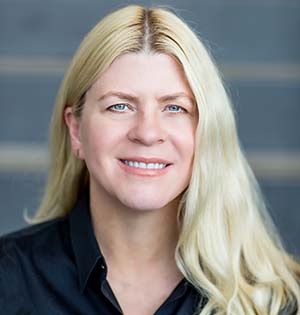 President of Lucy Activewear and Berkeley MBA for Executives student . Laurie sees herself moving from exec to entrepreneur in the next phase of her career and told Poets & Quants, "I realized I was reading and studying about all of these topics on my own...so I thought: why not formalize this education, supercharge the capabilities I am seeking, place myself in a world-class environment with the best thinkers and teachers? The question brought her to Berkeley-Haas, whose core values align well with her beliefs. “The strong reputation of the Berkeley EMBA program was very appealing, and my experience with the program office was incredible,” Laurie told Poets & Quants. While Laurie had concerns about how she would balance an MBA with work and life, she discovered that the biggest myth about going back to school is that there won’t be enough time. “Somehow you find the time for homework and studying,” she says. “You repurpose time and become much more productive quickly. You figure it out!” She's also seen synergies between school and family, as she and 14-year-old son, Harrison, share study tips and reading material. “Being students together has given us an entirely new world to enjoy at the same time. It’s been so fun to show him that learning never ends.” A leader who is most proud of the teams she has built and the integrity and courage she has shown, Laurie's ultimate goal is “to create and lead a business with an inspired team of people...solving big, global problems.” Fitting for someone who describes herself as a “driven by the cause.”  
|
| FROM Haas Admissions Blog: Yes, It’s Possible to Achieve MBA-Work-Life Balance |
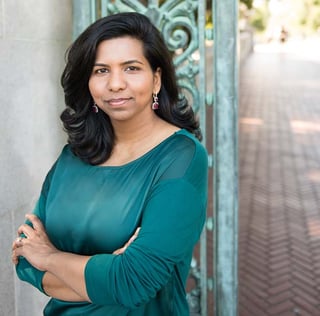 Swetha Tupelly used her Berkeley MBA from the Evening & Weekend Program to successfully transition from a previous career as an engineer. But within that simple statement lies a complicated story of juggling job, family, and school – a daunting triumvirate for anyone thinking about adding MBA studies to an already full agenda. How was she able to achieve MBA work life balance? In part II of our conversation with Swetha, we found out how she decided on the best program format for her—and how she managed to fit in the various demands on her schedule. She chose the Evening & Weekend format because it felt to her most in line with the full-time program. “I liked that we would be meeting every week, with the same curriculum, format, professors, and recruiting opportunities as the full-time MBA,” she says. “There seemed to be the possibility for deeper relationships and more continuity.” Skills for Balancing an MBA with work and life As a classic type-A-super-achiever, Swetha was used to exerting a high level of control over her work and her schedule. However, she found that accepting a certain loss of control was critical to her new normal as a part-time MBA student. Letting go was one trick—sharpening skills, like prioritizing and multi-tasking, was another. “I like to succeed at whatever I do,” she says. “But with so much going on in my life – three really diverse areas of demands – I found I just couldn’t do it all. I had to prioritize the heck out of everything and make peace with the fact that I couldn’t excel all the time.” Her greatest challenge was having to switch tracks at a moment’s notice – taking a conference call while she was caring for her young daughter, for example. “There’s never a time you’re not multi-tasking,” she laughs. “But what keeps you going are all the fascinating things you’re learning and the interesting colleagues you’re working with.” MBA Student. Product Manager. Partner. Parent. For her first year-and-a-half at Berkeley, Swetha finished work at four o’clock on Tuesdays and Thursdays, then took the school shuttle from Santa Clara to arrive on campus by six o’clock, and then return home by eleven. As a mother of a very young child, she says that having a supportive and understanding husband was essential to her success. Still, there were some bumps. “I had been our daughter’s primary care provider, and she would only go to bed with me,” she explains. “But because I was doing the evening program, I had to train my husband on the bedtime ritual. Everyone survived!”  Swetha completed her Berkeley MBA in December, and her husband and daughter proudly sat in the audience when she walked with her cohort at graduation in May – the family has also enjoyed attending a Cal football game together. “My MBA has greatly enhanced my professional trajectory, and the benefits will ultimately extend to my family and other aspects of my life,” Swetha says. “It was challenging at times, but totally worth it!” Swetha Tupelly decided a part-time MBA was an achievable goal within her work-life schedule. Find out how you, too, could make it work; get our free ebook Life + Work + MBA.  You may also like Part I of our conversation with Swetha, Why Business School? for a Career Switch to Product Management 
|
| FROM Haas Admissions Blog: Berkeley MBA Students Share Tips for Improving Your GMAT Quant Score |
 Taking (and doing well on) the GMAT or GRE is one way to show you are ready for the quantitative rigor of an MBA program. But getting a good score on the quant sections of these tests isn't always easy. That's why we're sharing Berkeley MBA student tips for improving your GMAT quant score. GMAT Quant Prep Tips Preparation is important even if you have experience with advanced college math. Alicea Wu, associate director of Drug Safety and Public Health at Gilead Sciences and a recent graduate of the Evening & Weekend Berkeley MBA Program, had studied up to Calculus 3, but found that her advanced math skills did not necessarily translate into preparedness for the GMAT Quantitative section. "Many of the quant questions involved a level of thinking beyond simple calculations," says Alicea. "While reviewing math concepts is important, doing practice questions is more important—as that is exactly how the test will be,” she says. 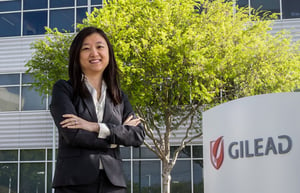 Every weekend for 16 weeks, Alicea would simulate test conditions and challenges by running through 37 practice questions in 75 minutes. "Being consistent in preparation had the most impact on my GMAT quant score." Alicea structured her practice sessions to hone one particular skill at a time. "I consistently made practical and purposeful goals for each study session," says Alicea, "For example, ‘My goal for today is to review trigonometry concepts with practice problems.’" Prepping for business school entrance exams? Download our free ebook with Berkeley MBA GMAT/GRE Test Prep Tips Andrea Michaelian, Marketing Manager at BlackRock and a third-year Evening and Weekend MBA student, also learned the value of practice while preparing for the GMAT. "In addition to taking prep classes and learning the strategies, repetition of practice problems was the best thing I did," says Andrea. "The classes will only take you so far. You have to practice in order to apply the strategies and remember them when you're under pressure in the test environment. You want it to be almost like muscle memory by the time you get into the room." "I also recommend periodically doing diagnostics throughout your study plan to figure out how the practice is affecting your score and what you need to focus on," says Andrea. "Being able to go into the test room and feel like ‘I've done this and I know what my score range is going to be’ will help you get through the test with minimal nerves." The Benefits of GMAT Quant Prep Preparing for the GMAT or GRE not only ensures that you are ready for the exam, it also helps you brush up on study skills that will help you succeed in a rigorous MBA program, such as the Evening & Weekend Berkeley MBA, Full-time MBA, and Berkeley MBA for Executives Programs. "An MBA program requires a variety of both quantitative and non-quantitative skills,” says Berkeley MBA lecturer Gregory LaBlanc. “But quantitative skill isn't always about the ability to perform certain mathematical operations. It’s also about the ability to think analytically," "Some of the things you do on the GMAT, may not reflect what you do in practice, but they reflect an ability to think analytically. That ability is really important. If people didn't bring that underlying quantitative fluency to class, we would spend a lot of time at the beginning of the program doing a mathematics review." "The first year of the MBA program consists of core classes such as statistics, microeconomics, accounting, and finance. Even classes like operations require you to be comfortable with complex formulas and calculations,” says Alicea Wu.. “Before enrolling in Berkeley-Haas, it had been many years since I had taken a math class, so reviewing math concepts and doing practice questions for the GMAT helped me prepare for these quant heavy classes." Are you thinking about taking the GMAT or GRE? Download our free ebook Avoiding the GMAT/GRE Blues.  
|
| FROM Haas Admissions Blog: Using an MBA and FinTech to Empower Underserved Communities |
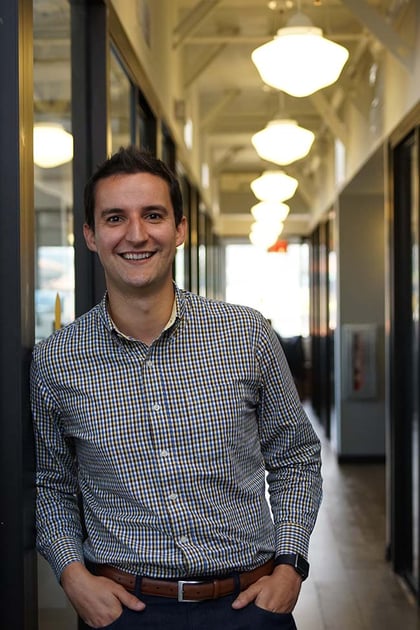 Oportun product manager Pedro Moura works to create scalable solutions to the financial challenges faced by underserved communities. A third year student in theEvening & Weekend Berkeley MBA Program, he spoke with us about his MBA and FinTech work and about what led him to Berkeley-Haas. Immigrant experience fuels the desire to serve low income communities I immigrated with my family to the U.S. when I was 15. We left Brazil to escape financial hardship. My mother, who was a business owner in Brazil, came to America hoping to build a new life from scratch. She cleaned houses, worked as a babysitter, and did everything she could to accomplish the goal of giving her children a better education. She eventually moved back to Brazil when things improved economically. However, I stayed in the U.S. in order to enroll in an undergraduate program and to play Volleyball at UC Davis. While studying economics and international relations at Davis, I took a class with Professor Steve Boucher where I was introduced to the academic side of both microfinance and microinsurance. The idea of providing small dollar loans to underserved communities was planted. From traditional finance to FinTech—and alignment with personal goals Although I initially tried a more traditional finance career, interning at Morgan Stanley and subsequently taking a job at JPMorgan Chase after earning my undergraduate degree, I eventually realized it wasn't my calling. In 2011, I was lucky enough to bump into Oportun, the organization where I have worked for the last six years. We focus on providing affordable loans to individuals with little to no credit. Oportun is a company with a mission that is much aligned with my personal goals. Haas seemed like the perfect fit for me...Berkeley’s focus on entrepreneurship and social impact were definitely important drivers in my decision. Working at Oportun for about four years during a rapid growth period has been quite rewarding. We grew from a company of less than 300 people to over 2,000 and from 60 retail locations to 200+ locations and online operations. So for me, it was time again to maximize personal growth and think more broadly about the impact I wanted to have on financial services for underserved communities. I wanted to build on previous experience with new skills, meet and collaborate with individuals who care about the cause, and take innovation and entrepreneurial classes to better understand what other products could be designed for underserved communities. After evaluating a number of other programs, Haas seemed like the perfect fit for me and a place where I could achieve all of these goals. Berkeley’s focus on entrepreneurship and social impact were definitely important drivers in my decision. Why he chose a part-time MBA program My organization was in a pre-IPO stage when I decided to get an MBA. Although I valued the opportunities offered bythe full-time MBA program, foregoing the work experience and my income did not seem like the smartest decision for my career. Instead, I built in some flexibility at my job to reduce my workload and enrolled in theEvening & Weekend MBA Program. I went from a full-time position at the company to a part-time position with different responsibilities. This has really allowed me to spend more time on campus and get involved as well as reflect on my experiences. Applying MBA lessons to real life (while still in school) While completing core classes in my first year, I participated in a lot of extracurricular activities, such as theHaas Impact Investing Network (HIIN), which allowed me to look at a lot of early-stage start-ups within financial empowerment to get inspiration and ideas. It also helped me to see the other side of things and learn what venture capitalists look at and think about when deciding to invest in companies. I have also been able to directly add value to Oportun by leveraging class learnings and immediately applying it to projects I directly work on or influence. For example, Applied Innovation (an innovation class that uses lean methodology and design thinking) has really helped to facilitate a project I am working on that involves identifying customer needs in a new market and designing a digital customer experience. And, I’ve been able to use class projects, such as pricing projects, to do work related to Oportun. That really is one of the key benefits of doing the Evening & Weekend Berkeley MBA Program—I don't have to wait until the program ends to begin applying what I have learned. Making sure individuals have the proper tools to succeed is important to me. Like many other immigrants who move in pursuit of a better future, my family and I have endured financial hardships. I was fortunate enough to move to the U.S. and get a great education. This background has shaped a personal philosophy built on the desire to give back to people who are facing similar experiences and adversity. There aren't a lot of financial services companies out there thinking about ways to design responsible services for low-income communities. Making sure that individuals have the proper tools to succeed is important to me. Hence, I decided to dedicate my career to spearheading innovation and creating scalable solutions to tackle financial challenges experienced by underserved communities. At the end of the day, I get inspired by knowing that the people I interact with and the products that I design can truly make an impact in lives of individuals. Are you focused on giving others the tools to succeed? Learn more about how the Berkeley MBA can help you have the social impact you seek.  Photo by Trevor Henley, Desire to Inspire Studios 
|
| FROM Haas Admissions Blog: How Much Work Experience Do EMBA Students Have? Our 2018 Class Profile |
|
If you're looking at EMBA programs, you're likely seeking answers to questions like: How many women are in the program? What is the mix of industries represented? How much work experience do EMBA students have? In short, you'd like to know who pursues an MBA through an executive program and what that might tell you about whether an EMBA is right for you. A look at top EMBA programs will show that women make up anywhere from 20-33 percent of EMBA classes and that, in general, work experience of at least 8-10 years is recommended. While EMBA students in top programs have typically been in the workforce 11-14 years, most programs evaluate your application holistically--interested in your career trajectory, demonstrated leadership and leadership potential, and in the industry perspective you bring to the mix. Review EMBA class profiles to get a feel for the kinds of students in programs that interest you—and to learn more about our program, take a look at the Berkeley MBA for Executives Program class of 2018: 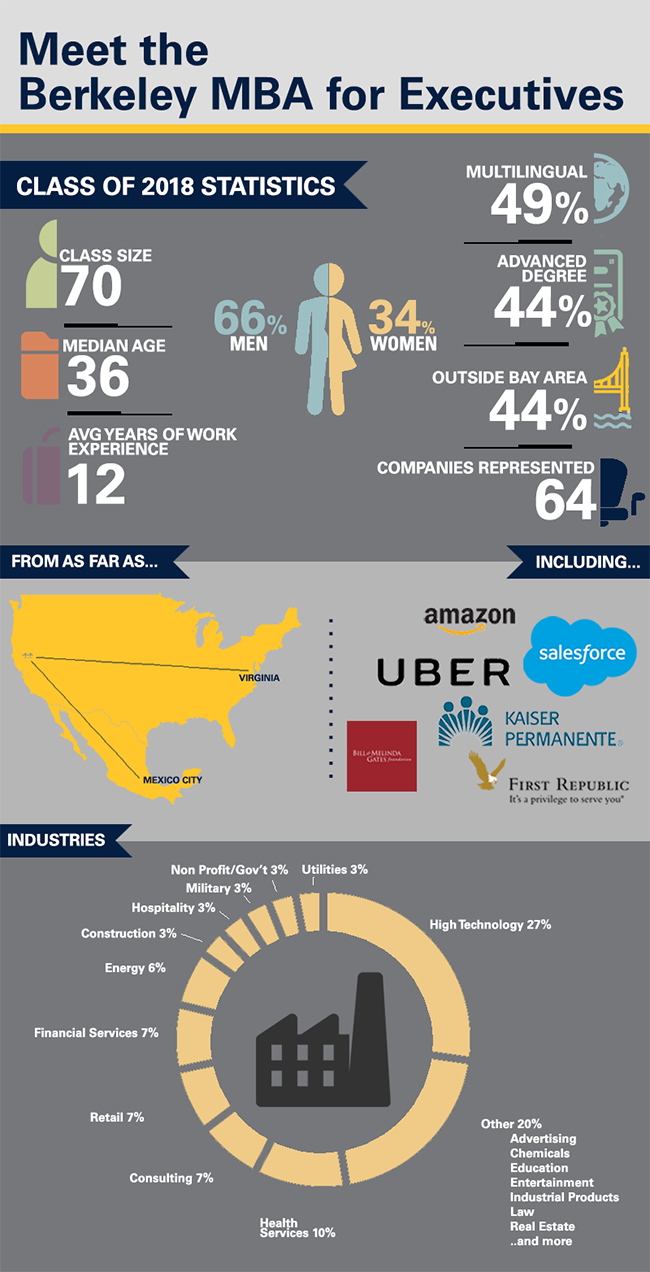  
|
| FROM Haas Admissions Blog: Can an MBA Help You Find More Rewarding Work? Ask Swetha Tupelly. |
 When Swetha Tupelly came to Berkeley-Haas to get herBerkeley MBA in the Evening & Weekend Program, she had a specific goal in mind: to find her way to more personally meaningful work by transitioning from a career in engineering to one in product management. As a technical lead and engineer at the San Diego semiconductor firm Qualcomm, Swetha worked for eight years building connectivity in consumer devices. Although she trained for years to be an engineer – with a bachelor’s degree from Jawaharlal Nehru Technological University and a master’s from Villanova University – she became restless in the engineering wheelhouse. A Desire to Move Beyond Pre-defined Problems “The products we were building had already been defined,” she remembers. “I enjoy problem discovery and prioritizing what gets built first. I wanted to own more of the product lifecycle and define the vision and direction of the product. And, because I have a very outgoing personality, I wanted to get out and talk to customers." “The business acumen I’ve learned, coupled with my solid engineering background, allows me to take the product from idea to launch in new and exciting ways." But her path was a steep one: not only did she want switch positions, she would end up switching industries – from semiconductors to software. Swetha had determined that Berkeley-Haas was the school of her choice, and decided that the Evening & Weekend MBA Program would best fit her already busy life. In addition to coursework, she took advantage of the extra activities and resources offered by career services: visits to high-tech companies, informational interviews with product managers, a resume review, and coaching on how best to tell her professional story. “I was very religious about it,” she says. Using the MBA Network to Land her Next Job When the time came to start looking for a new job, Swetha found the perfect one through the Haas Alumni Network. She found the position through the Career Management Group and was able to reach out directly to the posting alum. Any advice for others looking to make such a dramatic transition? “Be very clear on what you want,” she says. “Be open to an internship, especially if you want to break into a different industry. Take advantage of all available resources and start the recruiting process early.” Now, as a product manager for the Pleasanton-based ServiceMax – a SaaS division of GE Digital that provides field service software for big businesses – Swetha has the job she dreamed about—one that, with her Berkeley MBA, gives her the chance to “develop products and go-to market strategy in a more informed way,” she says. “The business acumen I’ve learned, coupled with my solid engineering background, allows me to take the product from idea to launch in new and exciting ways, such as predictive analytics and the internet of things." Does Swetha have any advice for those considering a similar path? “When people learn about your Berkeley MBA, they treat you like an expert,” she laughs. “You have to present yourself with confidence, because you already have so much credibility Can an MBA help you find more rewarding work? Swetha Tupelly found her new job with the help of a Berkeley MBA. Get our Five Steps Toward Making Your Next Career Move.  
|
| FROM Haas Admissions Blog: An International Student Perspective: Should I Move Abroad for My MBA? |
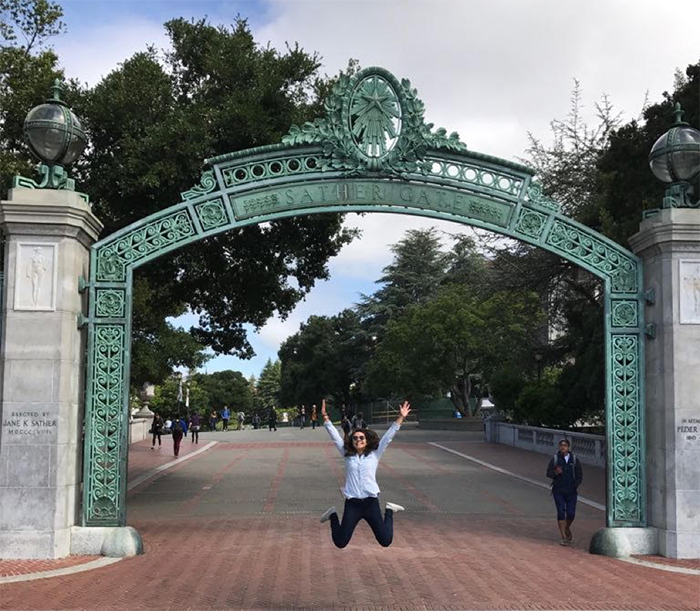 When I was accepted to Haas, I wasn’t sure whether moving abroad for business school would be worth it. I already had a business background and a career in a prestigious management consulting in Brazil, I did not know if I would learn new things at B-School. But, By the third day of my first week at school, I realized this experience would be life-changing. And now that I’ve completed my first year, I am even more sure that I made the right decision. Here are some of the reasons why: 1. Haas empowered me with an entrepreneurial mindset 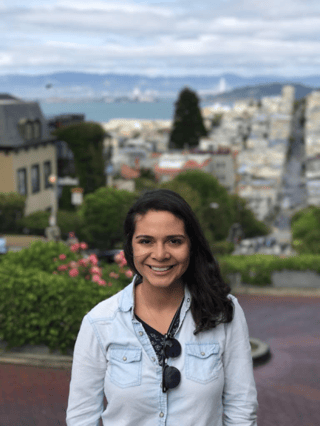 Being at Haas as an international student is a privilege. On top of the whole MBA experience, there is another layer of learnings on a daily basis: I am experiencing a new way of seeing the world and how it is translated into corporate culture and ways of doing business in the Bay Area. I was surprised to learn that being in the Bay Area automatically makes you an entrepreneur! I’m exaggerating just slightly here. But I’ve found that discussions about business opportunities and problems which could be solved happen every day. My classes push that to the next level. This spring, I took two amazing electives: Hands-on Rapid Prototyping, in which I created and tested a prototype of a new product in five weeks; and Opportunity Recognition in Silicon Valley, in which CEOs of disruptive technology companies discuss their go-to-market strategies with us every week. Being exposed to this environment has awakened my entrepreneurial side, and empowered me with tools and a can-do attitude to create new solutions and implement them. During the spring semester, I worked with a startup, mapping its competitive landscape and creating reports to the board. For the summer, I decided to use my internship to gain experience in the tech industry and put into practice some of the concepts I learned at Haas. I am passionate about consulting and strategy, but this summer I am working as a product manager at Walmart e-commerce. PMs (as product managers are called) are responsible for “shipping” (bringing to reality) products and features. I am super-excited to see something that I created and owned going live, and getting used by millions of customers. 2. Haas is more multicultural that I ever thought it would be Complementing the professional side, the personal experience of being an international student in such a diverse environment is very gratifying. I have learned that at Haas, nationality and culture show themselves in many colors and tones—far beyond just where you were born. I’ve met Americans who have lived many years abroad and carry that experience in their DNA. I’ve also realized how many second-generation American and bi-cultural students are at Haas, and how this enriches our perspectives. This is a very encouraging environment to share my ideas inside and outside of class. This year, I attended several events where people share their unique points of view. My favorite one is “Hot Topics,” where students speak controversial themes such as immigration or gentrification. These events gave me a chance to listen and discuss emotionally charged subjects, build empathy, and listen other perspectives that I hadn’t considered. Those are essential leadership skills that I am learning inside and outside of the classroom. 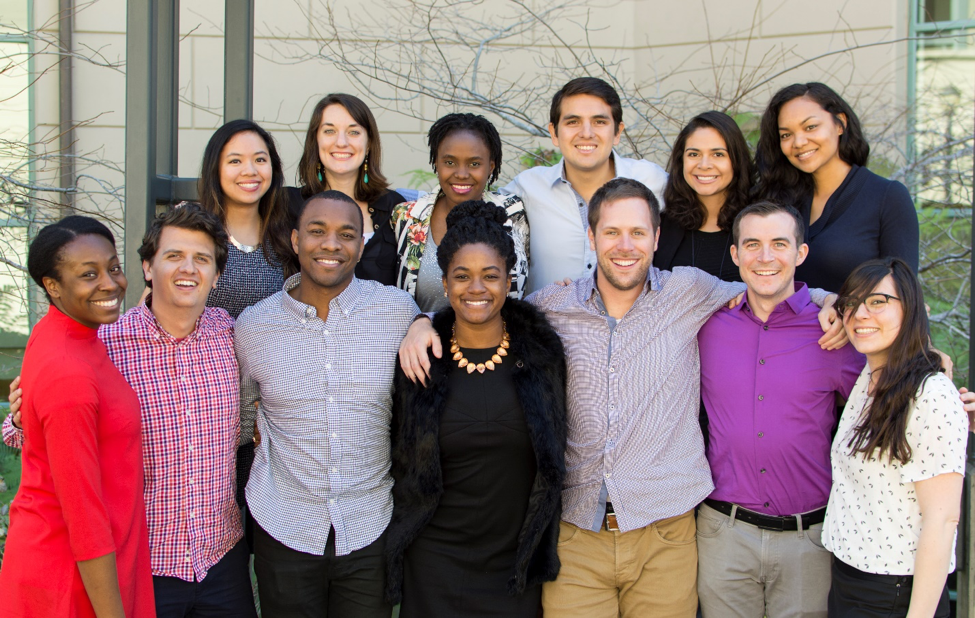 3. I have found many ways to grow as a leader One way that I found to contribute within this environment was by assuming a leadership position at the MBA Association student-led government organization (pictured above—photo by Eric Tecza). My role as VP of International is to represent the 40 percent of the MBA student body that is international, making sure that school initiatives take into account our needs. I have had meetings with the program office, the career management group, and my peers in the MBAA. This has given me the opportunity to interact with a wide variety of people and learn a about the program from different perspectives. In parallel to MBAA, I also am the Haas ambassador for GNAM, the Global Network of Advanced Management, a league of 29 business schools from diverse regions, countries, cultures, and economies in different phases of development. The leadership opportunities in Haas are endless! You can work in clubs, organizing events, representing the school as a student ambassador, and organizing treks. One of my most memorable experiences was to co-led with an amazing classmate a trek to our home country of Brazil (below—photo by Will Myers). It was incredible to show the places that made me who I am to my beloved classmates, and to rediscover my country through their eyes.  I am not only am learning valuable skills inside the classroom, but also, I am developing my leadership skills outside of it. Finding home away from home Ultimately, the Haas community is about sharing. This two-year experience definitely pays off being far from my country, family and friends, because at Haas I always feel at home. Could Berkeley-Haas be your home away from home? Learn more about the Full-time Berkeley MBA Program.  
|
| FROM Haas Admissions Blog: Student Perspectives: Is an EMBA Right for Me? |
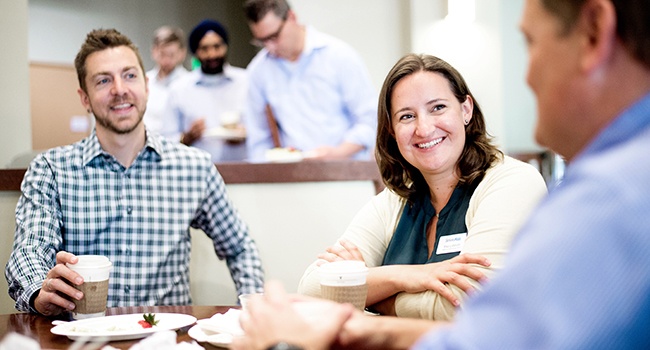 Sometimes, people don't see themselves as a fit for an EMBA program. They often worry that they are the wrong age or that they aren't executive material—or even, that they’re not currently executives. These fears are common, but unnecessary. Admissions committees work hard to populate EMBA programs with students who have a diverse array of experience and expertise. "We try to craft a class that brings a wide variety of experience both from industries as well as job functions. We also look for people at different levels of expertise to provide a diverse perspective," says Susan Petty, Director of Admissions for the Berkeley MBA for Executives Program. Susan also likes to remind applicants that they aren't on their own when it comes to assessing their qualifications and MBA-readiness. "We encourage prospective students to send us their resume. We love to sit down with them, either in person or over the phone, to review their CV and advise them on whether or not we think it's the right time for them to get their MBA and whether the format of the EMBA program is the right fit." Is an EMBA right for entrepreneurs? Manoj Thomas, an entrepreneur and student in the Berkeley MBA for Executives Program, wasn't really thinking about an MBA until he heard former and current Berkeley EMBA students speak as part of an entrepreneurship panel. "When I heard their success stories, I realized the big role the EMBA program had played in shaping the entrepreneurs in them. I also realized that formal business education and association with other entrepreneurs could take my company to the next level," says Manoj. Manoj does wish that he had sought an MBA earlier in his career and advises others to seize the opportunities that are available to them right now. Is the time right? Get our free ebook: Five Signs You're Ready for an MBA "I was always waiting to have more spare time. My advice to those who are currently evaluating their readiness is to do your due diligence and take the plunge now. Regardless of how busy you are in life, often, the right time is now," says Manoj. Is an EMBA right for managers? Katherine Mlika, an EMBA student and Manager of Product and Program Management at Fitbit, originally applied to the Evening & Weekend Berkeley MBA Program and then decided to switch to the EMBA program after having her baby earlier than expected. "I felt like I could be a fit for either one. What came through to me when I sat in on a class and spoke to some of the folks in the current EMBA class was their level of real-world experience. I remember being impressed by the variety of experiences that people were bringing to the conversation. It was definitely something that I appreciated." Katherine recommends that prospective applicants assess their readiness by thinking about whether or not they are really ready to contribute and learn from others. "If applicants are willing to participate, consider other viewpoints, argue in a friendly way, and really engage with the professors and fellow students on multiple levels, then they are probably ready for an EMBA program," says Katherine. Is an EMBA right for more deeply experienced professionals? Kevin Blake, a student in Berkeley EMBA Program and Managing Director at Berkeley Research Group, a strategic advisory and consulting firm, had 15 years of career experience and wasn't interested in any other program except the EMBA program. "I wanted to experience learning with a diverse, but also seasoned, group of people," says Kevin. "I chose Berkeley because of the people and the culture, and I have not regretted it for a single second. It's one of the best decisions I have ever made in my life." Kevin suggests engaging in self-reflection and considering your mindset to determine whether or not you're ready for an EMBA. "I don't know if you can ever know if you're ready. There will always be some self-doubt before, during, and after the program. You're never going to be 100 percent sure and confident, but if you come in with the right mindset of wanting to give and wanting to experience and explore, I think that's the right mindset to have," says Kevin. Before asking themselves, "Is an EMBA right for me," these students first asked, "Am I ready for an MBA?" Our free ebook can help you answer that question—and requesting a personal consultation can help you decide if an EMBA is the way to go.  
|
| FROM Haas Admissions Blog: Can a Part-Time MBA Help You Change Careers? Ask Yi Lin Pei. |
 Although there are people who attend part-time MBA programs to advance along their current career trajectories, there are some people who attend business school to find their true career path—like Yi Lin Pei. Before enrolling in the Evening & Weekend Berkeley MBA Program, Yi Lin worked as a civil engineer at a consulting company. She made a significant pivot in her career and now works as a marketing manager for Autodesk. Discovering her true passion: A love for storytelling "While I really enjoyed all aspects of my job, the part I enjoyed most was storytelling. I decided I wanted to explore that more deeply, so I came to Haas to learn about where that career path could lead me," says Yi Lin. It is a common misconception that everyone who enrolls in an MBA program does so with a specific career plan in mind, but Yi Lin learned that she wasn't the only one who was still trying to figure it out. "From my experience with classmates, I saw that few people have a true idea of what they want to do," she says. Six months into the program, Yi Lin took her first marketing class, and everything clicked for her. She realized that marketing requires storytelling and creativity as well as a strong handle on data and analytics to determine whether or not creative efforts actually make a real impact. "I felt that was a great way to combine both the left side and my right side of my brain," she says. Using an MBA Internship to Gain Experience Yi Lin quit her engineering job to focus on landing a marketing internship, but after getting rejected by all the big companies, she knew she needed to find a way to stand out among other applicants. "I wasn't emphasizing my competitive advantage over others," she says. After reflecting on her experience, she determined that her competitive advantage was her people skills. She emphasized those skills during interviews and switched her focus to global companies that would appreciate the fact that she had lived in many different countries while growing up. Her new approach landed her an internship at Nestle. Making a second pivot to tech marketing "Right after my internship at Nestle, I realized I love marketing, but also missed tech. I decided to do pivot number two," she says. Yi Lin began targeting companies where she had a competitive advantage and made the switch from CPG marketing to tech marketing. Autodesk was one of her top choices based on her experiences with AutoCAD. "The next thing for me was to identify people who worked at Autodesk because, through experience, I found out that a referral is about 100 times more powerful than an online application," she says. Yi Lin got a referral from a classmate, who happened to work at Autodesk, and landed her first interview. Getting a Job Offer After three interviews at Autodesk, Yi Lin determined that, once again, she needed to do something extra to get the job offer she was looking for. She decided to demonstrate her ability to implement marketing content through video productions. With the help of her friends, she produced a sample marketing video for an AutoCAD product. Two weeks later, she got an offer letter from Autodesk for a job in the marketing department. The video had made an impression "It was a big differentiating factor. They chose me because of that," she says. Relying on the MBA Network The support Yi Lin received from classmates, alumni, and the Career Management Group (CMG) turned out to be one of the best values of the MBA program. "When I was prepping for my interview at Autodesk, there was an alumni who practiced with me for every stage of the interview," she says. "I also had classmates who were going through the same process with me. They would practice with me, and we would check up on each other to see how we were doing. I never felt alone in that process." Yi Lin credits the Career Management Group with helping her find her sweet spot through behavioral interview practice and strategy questions. "I would not be where I am without the help of the CMG. I really mean it. Even from day one, when I was prepping, they were there to help me," she says. Can a part-time MBA help you change careers and find even more fulfilling work? Yi Lin Pei found her true career path with the help of a Berkeley MBA, and we can help you with our Five Steps Toward Making Your Next Career Move.  
|

|
|
||
|
Hi Generic [Bot],
Here are updates for you:
ANNOUNCEMENTS
Tuck at Dartmouth
|